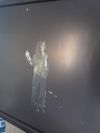“Free Schools Are the Future of Education”
An interview with Marko Kazic, creator of Pionir Free School in Serbia which serves as a replicable model towards building an exponential culture.
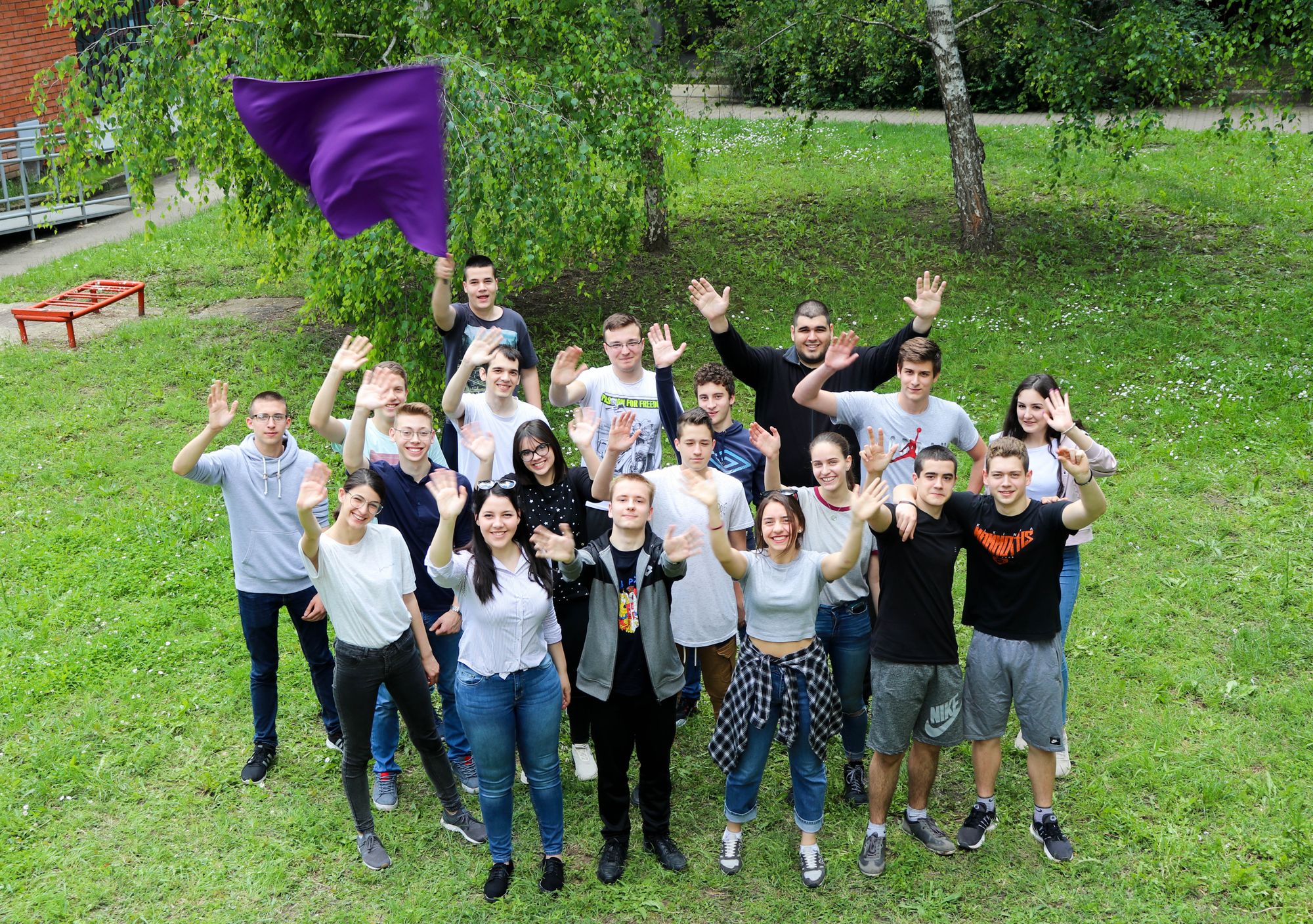
An interview with Marko Kazic, creator of Pionir Free School which serves as a replicable model towards building an exponential culture.
Tell us about the journey to forming Pionir Free School.
Marko: Ever since I was young, I’ve had a problem with formal education and felt frustrated by the amount of time spent in the bureaucracy of learning.
I dropped out of college, and I went straight on to work in tech companies as a digital nomad, spending time in China and Hong Kong, also with American and European companies.
Looking at these different ecosystems, I found that other people are just as frustrated as I am with the authoritarian way of teaching, with the way that curriculum is built, and how countries and corporations are the ones actually controlling things.
The problem today is that education is getting commercialized. A lot of people who don't have money to pay for better education are just left out of the system, specifically, people who are marginalized - and that's a lot of communities.
That difference, in the Western world, could be one community. But in Europe or in Africa, it could be a lot of people. They don't have the access to proper education, and that’s a systematic problem.
Since 2000, there has been a growing commercialization in education in Serbia. Textbooks are getting more and more expensive, plus there's even lobbying against free textbooks.
So I returned to Serbia, because I saw here the need to build a proper school, based around free education, that could be an actual facility where we teach young people and test ideas. This is how Pionir was born.
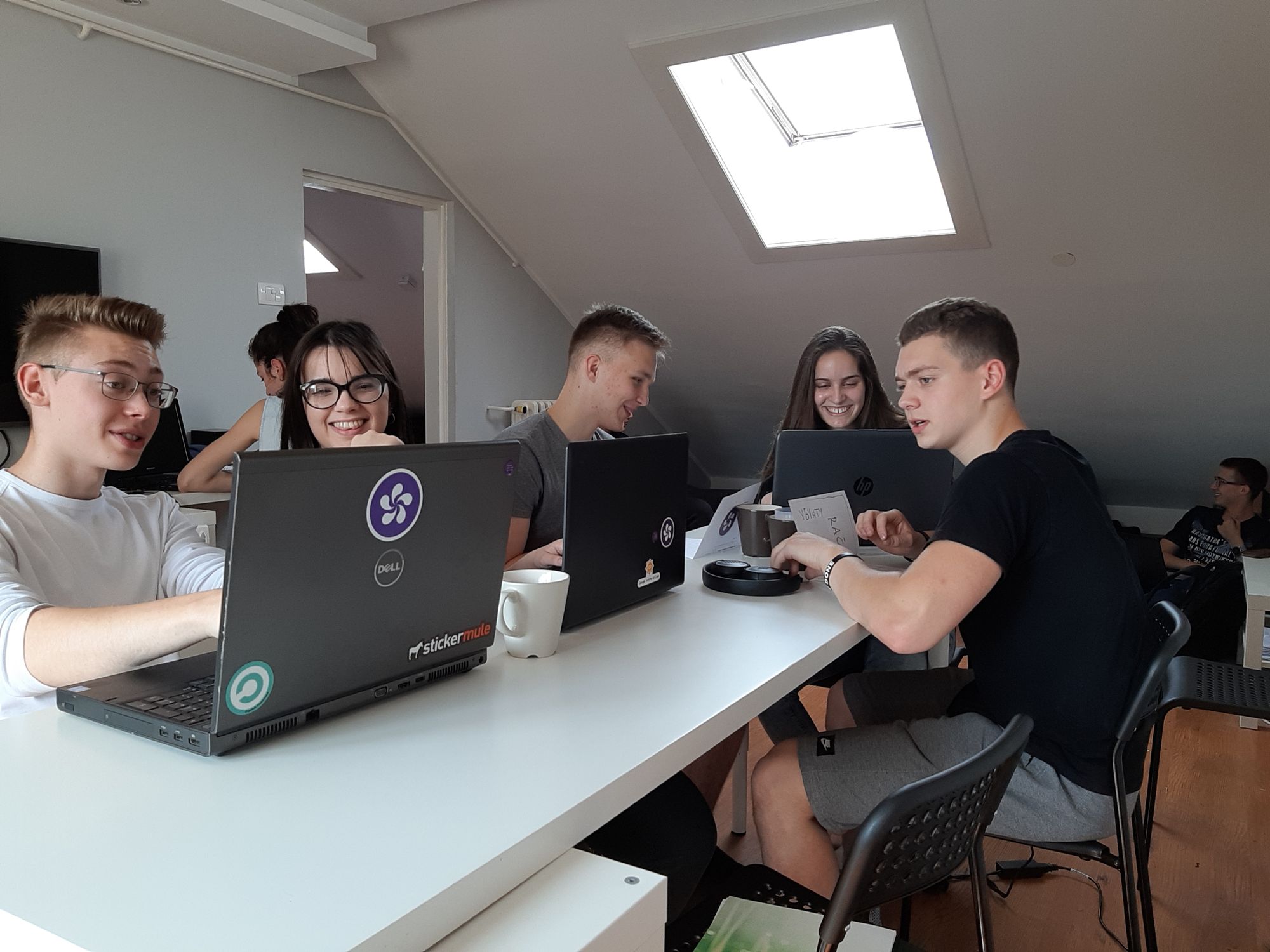
Pionir Free School doesn’t have a curriculum- this is the core idea. The whole process of education becomes integrative. Everything our students do has a purpose in society. When they build software, they build open-source software that gets used either by the school, by themselves, or with their families.
In the school, we also build hardware such as weather stations that measure air quality - because that’s a big topic in Serbia now, where the air pollution is getting worse and worse. It’s something students can implement in their local community that makes their lives better.
This boils down to students finding value in their own learning- which is something that a lot of people don't find in schools. Academia is getting more elitist from year to year. Meanwhile, people need to learn. One of the core principles we have is that the school must be free for people that are learning - they are not clients. Students should not be clients.
When you add the whole dimension of profit to education, you lose the core purpose- we are learning because we want to be better people, not because we want to fuel generational machinery.
We wanted to build a school that's free, that's accessible, that's inclusive. There is no acceptance criteria, anyone is welcome. Prospective students can just walk in, then have four months to find their place. They can test the equipment, try the courses, ask other students for help, and it's a free school!
We have students who do design and illustrations. We have students who are good at communication, who are programmers. We are starting experiments with AI, biohacking, plastics upcycling, sustainable development, and water reuse. Students are in a communal place where they have access to proper computers- which is actually a big deal, because a lot of people don't have the funds to have a decent computer at home.
At Pionir School, they have tools, they have space, they have support, and they have inclusiveness. We also have the same outputs for male and female students.
What’s your goal?
Marko: We build replicable models.
We’ve made a platform that you can build on top of. The idea is for a 'free school movement' or 'free education movement' to grow globally. That can only be accomplished if we can replicate these models in different cultures and different places with very limited funding- and we have very limited funding.
This is intentional. We're not asking for sponsorships from companies, because that money can spoil you. We have a participative economy. In former Yugoslavia, there was a self-management movement where the workers were also the owners of the companies. New economic models show that working at cooperatives is very popular in Europe right now. In Serbia, this has existed for 50 years. Looking at these models now is very rewarding. The experiences from past generations can be applied and used to fuel the growth of the school.
We spent the whole summer cooperatively building our school’s facility! We didn't hire contractors, and we didn't have handymen to help us. The students were the ones who made the whole electrical wiring, painting the walls, and mixing mortar. We created our own process completely.
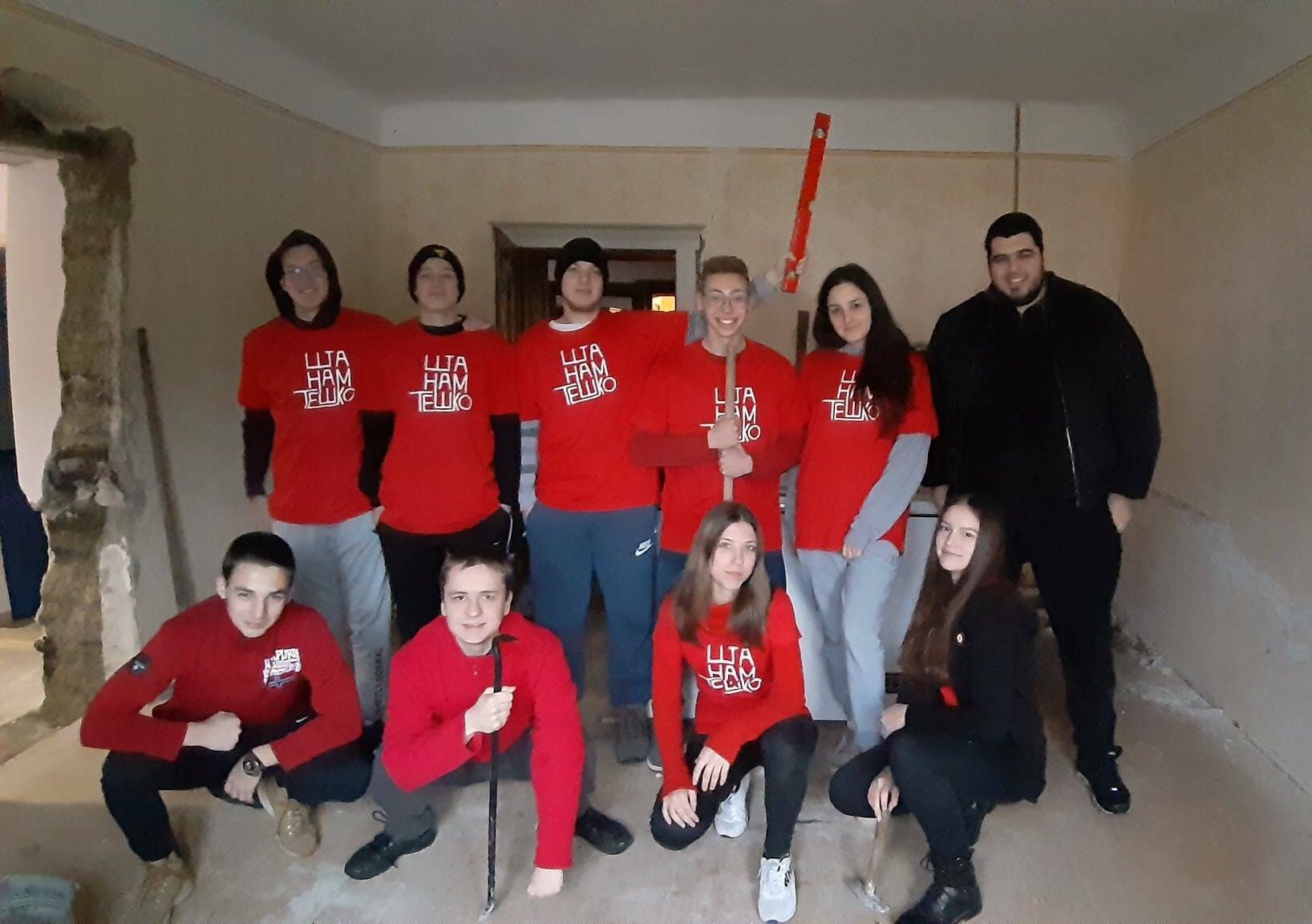
Who are your instructors?
In cases where there are skills that I or other mentors don't have experience teaching, we include people from the community to participate. If you build a devoted community, you can find people to train students in a wide variety of jobs.
Traditional schools hire instructors, but a lot of them do not regularly practice what they are teaching. This is a huge problem, especially in fields like technology, which is always rapidly changing.
For example, having a working software engineer as a mentor, rather than someone who has been teaching since they graduated in 1982 and doesn't have industry experience - The difference is paramount. It’s important to have people who are involved in specific areas, with skills and experience, as practitioners in order for them to be good mentors.
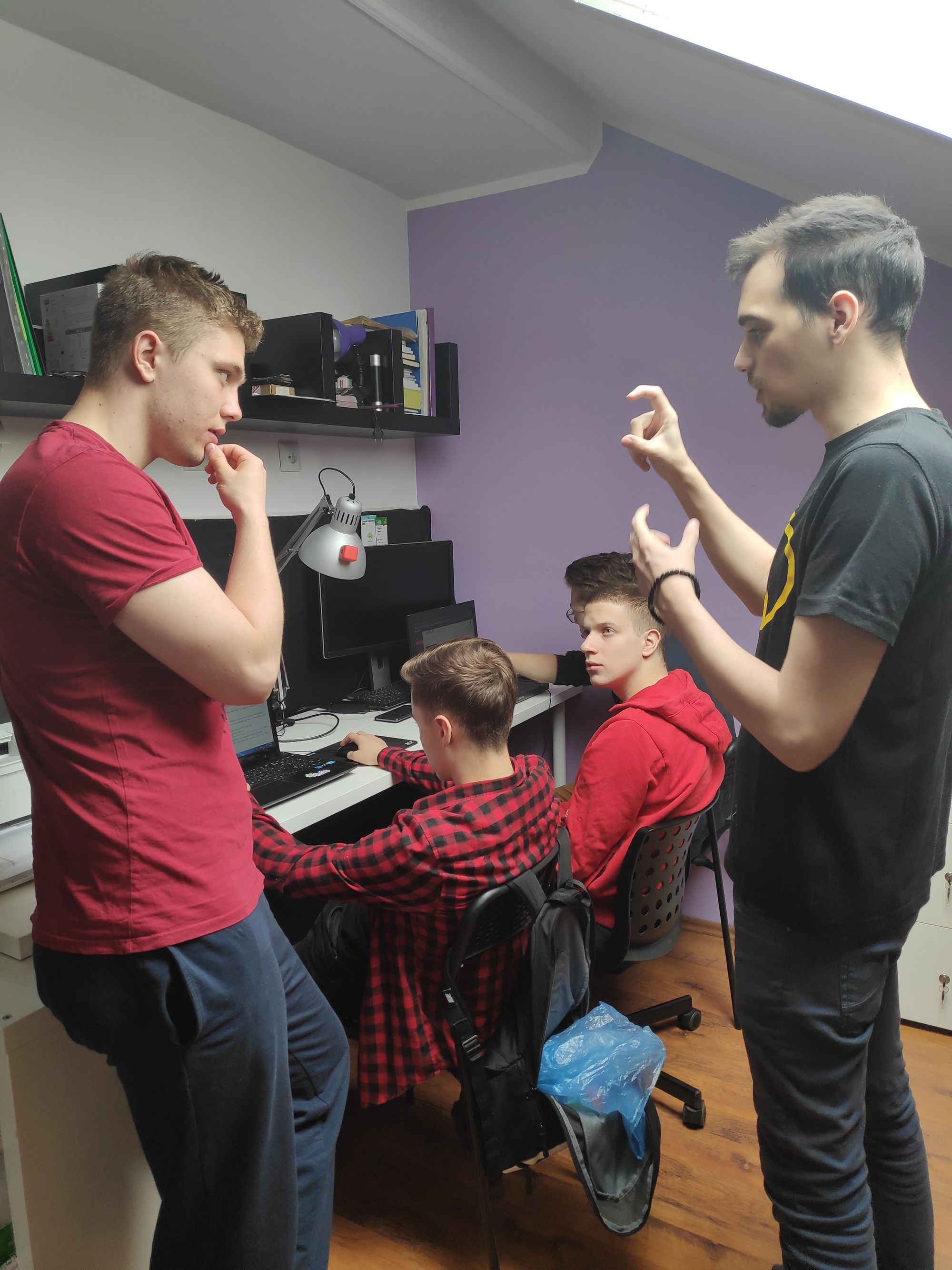
How do you find students? Or how do they find you?
We have an open call two times a year: One in April, and another in October. We usually post these things on Facebook, Instagram, our website, LinkedIn, and all around the community. But mostly, it’s through word-of-mouth or people sending links to each other.
The city we're in, [Kikinda,] is fairly small, a population of only 50,000. People are usually well-informed of what is happening locally, and information flows readily.
Also, our students bring their friends in. This is a great way of extending community. It's proof of our success! They’re saying "I can vouch that this is something that's going to be valuable for you." And trust me, kids are not looking forward to more school, by any means.
Students want to learn. What's really missing from formal education is the practice - applying what’s being taught.
Students spend a lot of time in school but never get to see the fruits of their work. They get to do that in Pionir school. It's not even about work experience or CVs. They get to see what they learned because they built something.’ It’s practical, and it's good for the community. We’ve built a lot of Commons that way.
What are the ages of these students? What does their journey look like in Pionir School and beyond?
The target group is usually around 13-17 years of age, sometimes younger.
We have three students who were with us from the beginning. One of them is now in Slovenia, she's studying electrical design. And two guys are now studying graphic design sophomores at the University of Novi Sad, the 2nd largest university in Serbia.
They had a significantly easier path to success in these colleges, because they have the skills that are usually lacking in high school kids. Our students already have projects in design and electrical design.
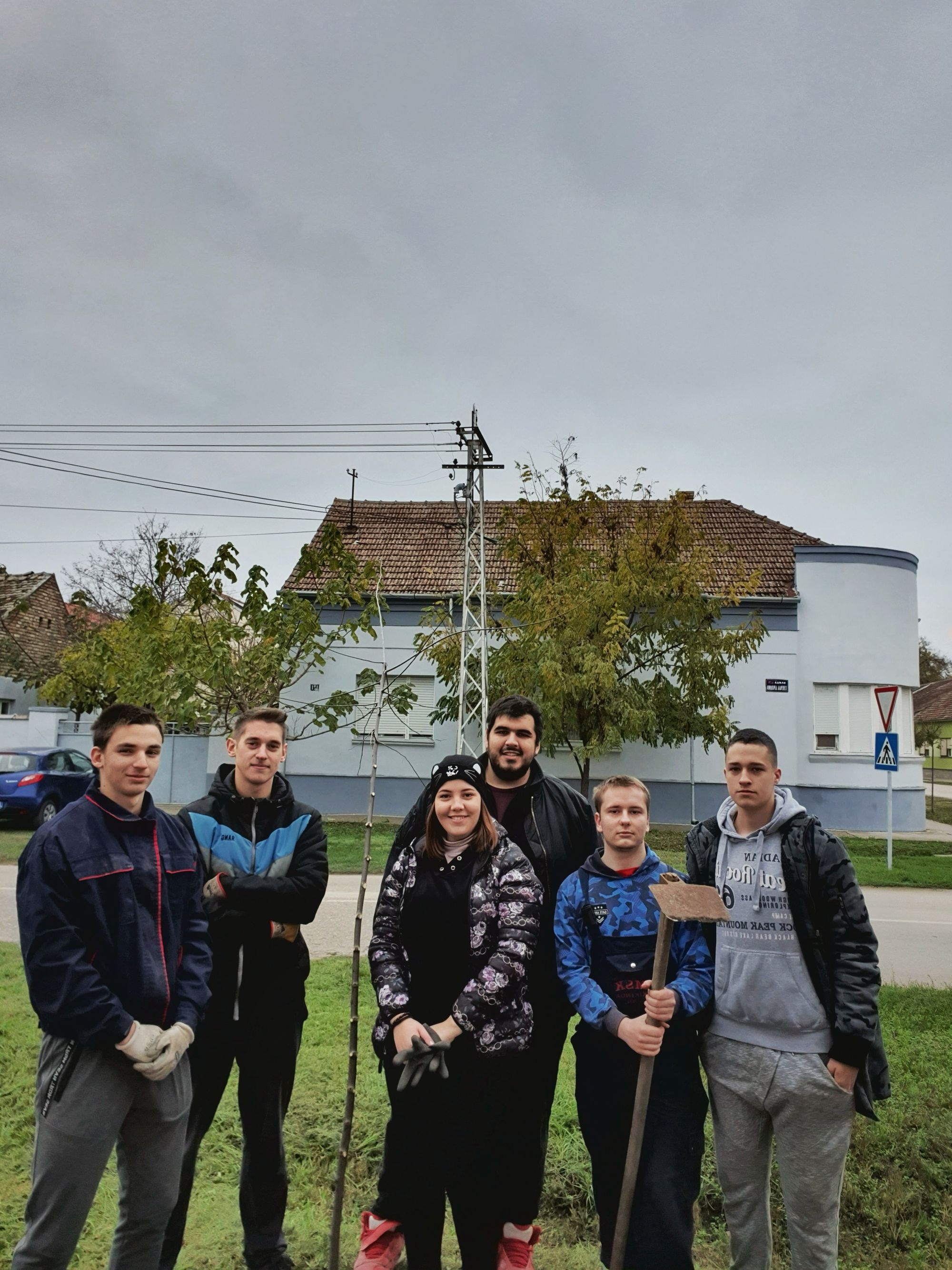
How do you measure success in your students’ growth?
Evaluation in formal education is mostly summative, meaning you get grades, and your grades are your accreditation for further progress.
I don't think that there's a measurement that's fair enough in the [traditional] system. From town to town, what does 'A' mean or what does '5' mean? (in Serbia, we have one to five, five being the best rate, and one being the worst) - what does a five mean? No one knows, no one can actually tell you.
Although this system is defined somewhere, no one actually knows if that's a portable five. Does a five in one school mean a five in another one?
This problem persists throughout the world. While these bureaucratic grading systems may provide an easier way to comprehend the progress of people, they're not even trying to get to know individuals for who they are, or how much they know. It just ranks them ‘somewhere’. It's easier for the bureaucrats.
But this is a system that's severely unfair to people who are in alternative schools. In formative evaluation, you get to see how people are growing as individuals, as practitioners of a skill.
Pionir’s students are able to prove that they know something by applying their knowledge. We don't want people to be frustrated about the grades that they get, because we know that these grades are never going to communicate their skills in a wider system.
Can you talk about ‘exponential culture’?
Usually, cultures are iterative: You improve step by step, percent by percent - you have to go through iterations to get to the process.
The idea of an exponential culture is teaching the new generation to think about solving problems in an exponential way. In order to tackle problems in your community (or globally), it is key to look at how problems are being solved in order to address the whole system.
In exponential culture, when faced with a problem, we ask ourselves, ‘Is this something that we can scrap completely? Is this something that can be transformed in a way where it can be left to the next generation, and they can exponentially improve it?’
Exponential culture is built on a premise that no system has to be permanent. Science, for example, never gives a ‘final’ answer. It says, 'This is true for now.' Pioneer school aims to model education using the same principle.
When ‘the system’ changes, it's usually a very slow process. But when society changes, it changes dramatically, as we’ve seen this last year.
Systems should be modeled and built so that they can change very easily, quickly, and be agile. The only way to accomplish this is to build an exponential culture.
This means having students who are also mentors. Exponential culture is a practical way to share knowledge. For example, one mentor teaches four students. Those four students become four mentors to the next generation, then sixteen in the next. This is a way to build a scalable educational model for all of humanity.
Current education systems are not modeled to think about how to spread further.
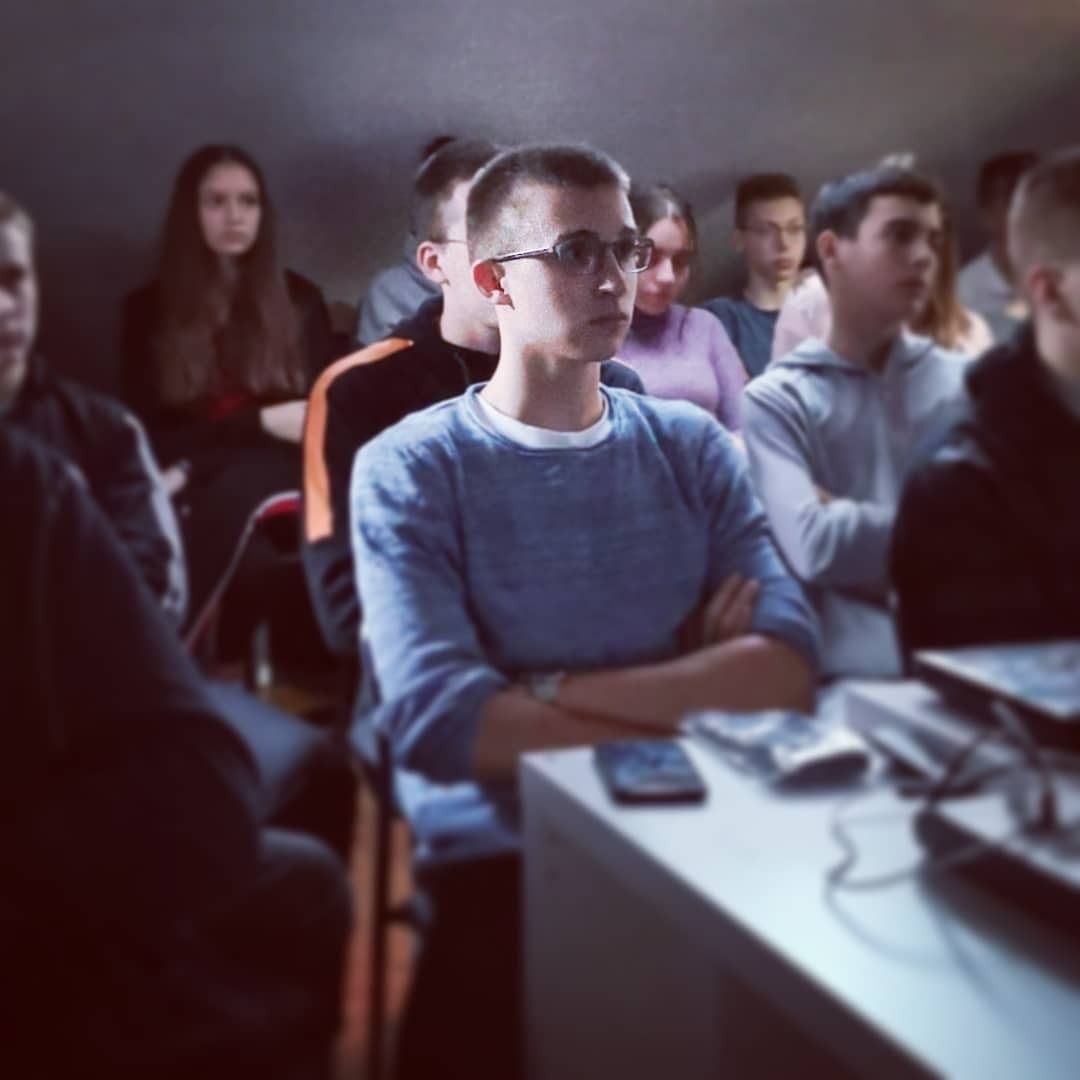
What drew you to want to use the Open Collective platform and crowdfunding?
Open Collective is a part of our effort to build a wider community.
A lot of our support comes from people within Serbia, but they don’t really have the means to participate. They express interest in helping the school in any way they can because small towns often get left behind, and a free education movement can be very beneficial to these communities.
Open Collective is a natural platform for Pionir to use because one of our core tenants is building open-source software and open hardware. We want to be with similar people who share our ideas and mission. It’s a communal thing.
Building commons in a school is underestimated in formal education today. Open Collective can help us obtain funds-, as well as reach communities to help jumpstart free schools.
If everything went really well with fundraising, what does that mean for Pionir School?
We need a filter for clean drinking water. The tap water is horrible, so we rely on buying bottled water, but funding could change this.
We've been using our own funds to work on different types of projects we want to accomplish. We bounty-hunted for bugs and helped out with open-source projects through Open Collective and we earned some money and bought a 3D printer and CNC machine. We still need things like an oscilloscope and a laser cutter, so our students can have access to a complete fabrication lab.
In addition to funding for clean water and educational projects, we need support for maintaining our facilities, like the electric and heating bills and keeping the space safe. Our operation model is fair and doesn’t really cost that much, so it seems very feasible for a community to maintain a facility like this.
What do you want the world to know about Pionir Free School?
Free schools are the future of education.
Through Pionir School, students find themselves helping, funding, and collaborating with people who want to build sustainable models to be widespread throughout the planet.
We consider ourselves to be an archetype for free school. Such models have existed in history, but we want to make free education a present-day practice because it's very sustainable for communities.
Students are free to study whatever they want; There is no ‘allowed knowledge’ or censorship. There is absolute freedom for individuals to express themselves. By helping this movement, I think that we can help humanity progress and make this planet a better place to live. Education is the core way to achieve this. Without education, there is no way for humanity to even think about freedom.
Who can get involved? And how can they get involved?
The obvious way is to support us on Open Collective, and it is much appreciated. Financial support, even $1, goes a long way when building something within a community.
We’re also seeking mentors for the kids to give them feedback or keep an eye on their projects. This could be through online platforms, or even communicating via email.
Open-source and open hardware projects who could use our students as interns are also welcome. We want our students to experience this global community, and we want them to participate as much as possible in open projects.
If travel arrangements ever get easier, we can host people to come to Serbia to experience what we’ve built here and help us plan a conference. I'm not really sure if that will be manageable in the near future, but even giving an online lecture would be an awesome idea.
So, if anyone has ideas that they think are valuable to share with a new generation, these ‘digital natives’, please ping us, and we'll do whatever we can to collaborate.
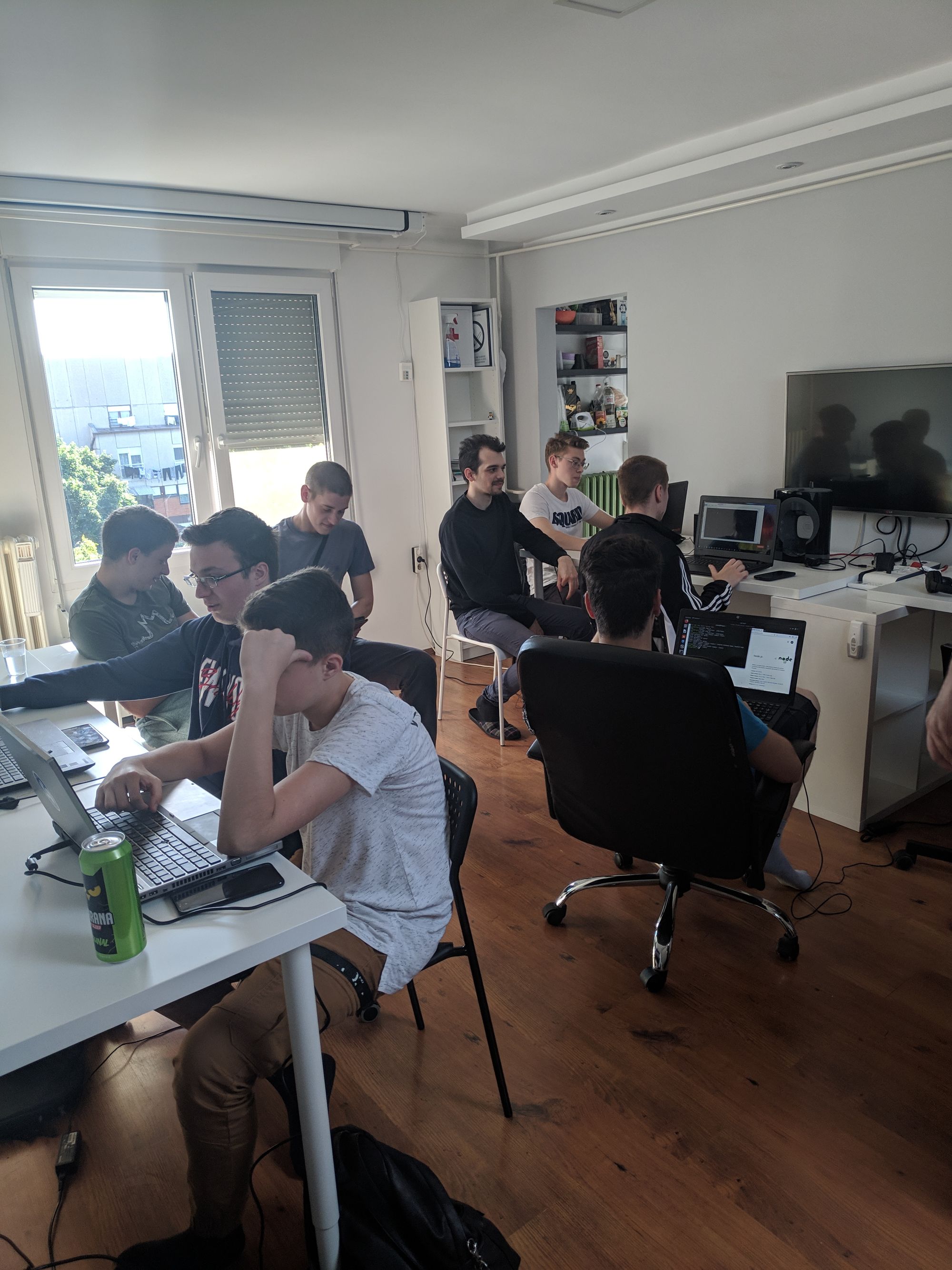
Thank you for sharing about it! Any last thoughts?
So far, we’ve had 60 students in two years that went through the program. The idea is to create a lifelong community built around continuous learning. In formal education, students graduate and don’t return. Schools should not be like that. School should be built into a community or family, if you will.
One colleague compared us to a church. He said, “This is the first school that's always open, and you can always go in.”
Communal spaces (and schools) should be like this: always open, welcoming, and safe. A space like this, provides a place for people to learn, build, get practical experience, and express themselves. It’s even more tangible than we could have ever predicted.
Like a community center?
Yes, but we want a systematic change. We want it to grow into a global community of people who take education away from the state and corporations, and own it themselves. This is something that the masses, and the people should be owning. Education, and health care, are very important for us to have. We shouldn't be pressured into getting them as resources from a corporation or government. Just in controlling these two, we are preparing the whole of society for a much wider space of freedom.
Connect with Pionir Free School
Transcribed by https://otter.ai
This interview has been edited for grammar and clarity.

